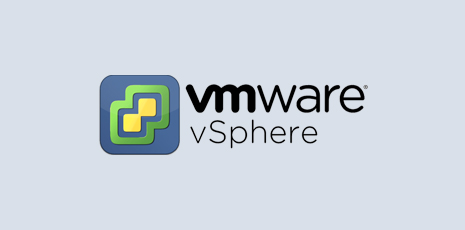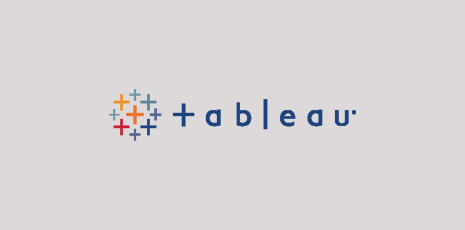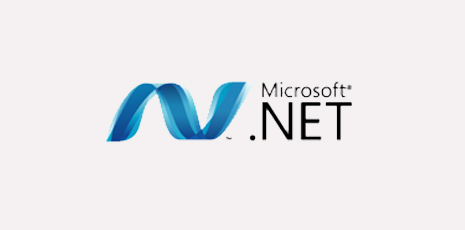DevOps Training
Devops Training Course will help you learn Devops and master various Devops concepts like cloud computing and virtualization, Devops adoption, Git, Maven, Chef, Docker, Jenkins, Ansible, Nagios Monitoring … etc. Learner will become proficient and deploy Devops principles and tools in software enterprise. You will learn how to integrate IT development and IT operations departments.
Course Content
INTRODUCTION TO DEVOPS
- What is Devops
- SDLC models: Waterfall, Lean, ITIL, Agile
- Why Devops?
- History of Devops
- Devops Goals
- Devops perspective
- Devops and Agile
- Configuration management
- Continuous Integration and Deployment
CLOUD COMPUTING and VIRTUALIZATION
- History and evolution of cloud
- Cloud computing concepts
- Grid Computing vs. Cloud Computing
- Characteristics and Benefits of Cloud
- Cloud service models (NIST)
- IaaS, PaaS and SaaS
- Cloud service model implementations
- Virtualization
- Virtual bootable OS Images
- Cloud Storage
- Introduction to AWS and AZURE
DEVOPS TOOLS
- The Choice of Cloud Platform
- IaaS for DevOps
- PaaS for DevOps
- Containerization Tools
- System Configuration Automation and Management
- Continuous Integration (CI) Systems
- Build and Dependency Management Systems
- Select DevOps Tools
- Collaborative Lifecycle Management Solutions from IBM
AWS BASICS AND LAB SERVER SETUP
- How to setup amazon account
- How to create a user in AWS
- AWS Market Place
- Amazon EC2, S3.
- Managing Login
- Amazon S3 storage
- Elastic IP’s
LINUX ADMINISTRATION:
- Introduction to Linux Administration
- How to create users and groups
- How to manage the system services using the systemctl
- What are systemlogs and how to use them
- How to configure the hostname, time and date, locale and keyboard settings
- How to configure the network interface and update IP address details
- DNS Configuration and other system tasks
- YUM and RPM Package Installers for RHEL
GIT: Version Control
- Introduction
- Version control systems
- Local, Centralized and distributed
- Installing Git
- Installing on Linux
- Installing on Windows
- Initial setup
- Git Essentials
- Creating repository
- Cloning, check-in and committing
- Fetch pull and remote
- Branching
MAVEN
- Introduction to Maven
- Maven Lifecycle
- Maven Phases and Goals
- Maven Directory structure
- Maven Repositories
- Maven Installation
- Creation of Maven structure
- Running Maven commands { site, clean, test, package, install, deploy, compile}
- Overview of Chef
- Common Chef Terminology (Server, Workstation, Client, Repository etc.)
- Chef Configuration Concepts
- CHEF Server & Organization Setup
- Configure Chef Development Kit
- Configure the Chef SERVER and initial configuration
- Add yourself and node to organization
- Workstation Setup
- How to configure knife
- Execute some commands to test connection between knife and workstation
- Node Setup
- Bootstrapping the Chef Client using knife
- Check node details using knife
- How to Add Run list to Node
- Environments
- How to create Environments
- Add servers to environments and customize cookbooks based on environment
- Roles
- Create roles
- Add Roles to organization
- Chef Language
- What is Recipe, Resource and examples of resources
- What is attribute and Attribute precedence
- Write cookbook showcasing attribute precedence
- Advanced Cookbook
- Creation of a apache web server cookbook
- Creation of Database cookbook
- Loops & Conditional in Chef
- Writing cookbooks showcasing the Loops & Conditional logic
- Testing
- Lint checking using FoodCritic
- Syntax checking using Codestyle check based on RoboCop
- Introduction
- What is a Docker
- Use case of Docker
- Platforms for Docker
- Dockers vs Virtualization
- Architecture
- Docker Architecture.
- Important Docker components
- Understanding the Docker components
- Installation
- Installing Docker on Linux.
- Understanding Installation of Docker on Windows.
- Basic Docker commands.
- Provisioning
- Docker Hub.
- Downloading Docker images.
- Running Docker images & Docker containers
- Running docker applications in container.
- Dockerfile
- How to create a docker image
- Instructions of Dockerfile
- Creation of multiple docker images from scratch using Dockerfile
- Docker Compose
- How to create a multiple docker containers
- Create a 2 tier/3tier application from a single docker configuration file
- Docker Swarm
- What is Docker swarm
- What is Docker High Availability
- Deploy an application in high availability mode across multiple services
- Introduction
- Understanding continuous integration
- Introduction about Jenkins
- Build Cycle
- Jenkins Architecture
- Installation
- Obtaining and installing Jenkins Server
- Installing and configuring GIT
- Java installation and configuration
- Maven Installation & configuration
- Exploring Jenkins Dashboard.
- Jobs
- Creating Simple Jobs
- Running the Jobs
- Understanding the JOBS and WORKSPACE Directory
- Understanding what is BUILD
- Build Deployments
- Understanding Deployment.
- Tomcat installation and configuration
- Deployment Plugins
- Jenkins LifeCycle:
- Creation of Complete application lifecycle from the Git -> Maven -> Junit -> Tomcat -> Documentation creation in a single Job
- Securing Jenkins
- Authentication & Authorization
- Matrix based Authentication
- Creating users
- Plugin Management
- Jenkins Build Pipeline
- What is Jenkins build Pipeline
- Creation of Jenkins Pipeline using the Pipeline Plugin
- Creation of Jenkins Pipeline using the upstream and downstream projects
- Coding the Jenkins Pipeline
- Real time scenarios of END to END Lifecycle management.
- Introduction to Ansible
- Very brief history and reason for development of Ansible Brief comparison with Saltstack and others
- Benefits and limitations of using Ansible
- Setting Up Ansible
- Configuration
- Inventory
- Playbooks: Roles, Plays, And Tasks
- Variables and Modules
- Quick Examples
- Deploying configuration of Apache server
- Managing changes in the configuration
- Comparison with Chef
- Introduction and Installation
- Obtaining Nagios
- Compiling and installing Nagios
- Basic configuration
- Configuring a linux server to monitor the complete statistics
- How can Nagios be extended in the Infrastructure
- Will provide guidance on how to tackle the DevOps interview.
- Will provide Interview Questions for the technologies covered.
CHEF FOR CONFIGURATION MANAGEMENT
Docker
Jenkins – Continuous Integration
Ansible
Nagios: Monitoring
Interview and Resume PREP
Why DevOps
What You will Learn in this Devops Online Training Course?
- Introduction to Devops
- History and evolution of cloud
- Cloud computing and virtualization
- Creation of Maven structure and running Maven commands
- Chef for configuration management
- Docker architecture and importance of Docker
- Obtaining and installing Jenkins server
- Understanding the jobs and workspace directory
- Tomcat installation and configuration
IT developers, software automation testing, security professionals, stakeholders, devops consultants can learn this course. Anybody can join this course regardless of their skills. A basic knowledge of coding can be helpful to learner. Our Devops Courseis developed keeping in mind the latest market trends. The training is completely hands on and developed in a way to help you in becoming a certified practitioner.
Features
Prerequisites to Learn DevOps
Live Online Training
Corporate Training
Job Support
5000
Total reviews
4.57
Aggregate review score
80%
Course completion rate










Ramkumar
I had enrolled for Devops course, the support team was very helpful. Course structure was well developed and easy to understand. Most of the concepts are included with practical examples. Go with IBM IT Solutions to start your Devops career.
Varaprasad
I didn’t know anything about Devops, before I attend demo session. The topics are explained in an elegant way. Thanks for the resources.